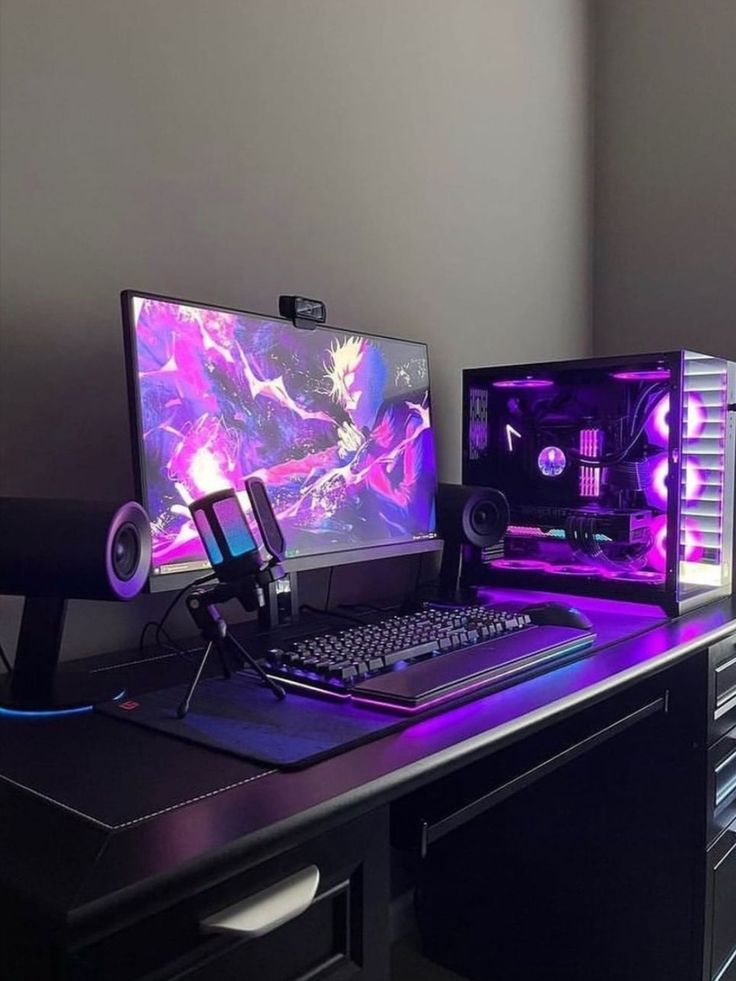When it comes to gaming, the choice between a desktop and a laptop can be a tough one. Each option has its own unique set of advantages and disadvantages, and the right choice often depends on your individual needs, preferences, and lifestyle gaming desktop. In this post, we’ll break down the key differences between gaming desktops and laptops to help you decide which one is right for you.

Performance
Desktops: Powerhouses on a Budget
Gaming desktops are typically more powerful than laptops at a similar price point. They can accommodate larger, more powerful components like high-end graphics cards and CPUs, leading to better performance in demanding games. Additionally, desktops are easier to upgrade, allowing you to swap out components as technology advances or your gaming needs change.
Laptops: Portable Power
While gaming laptops have come a long way in terms of performance, they generally lag behind desktops for the same price. However, they still offer decent power, especially for casual gamers or those who don’t need the absolute best performance. Many high-end gaming laptops can handle most modern titles well, making them a suitable option for gamers who prioritize portability.
Portability
Desktops: Stationary Gaming
One of the biggest drawbacks of a gaming desktop is its lack of portability. Desktops are designed to stay in one place, often taking up a significant amount of space. If you plan to game in multiple locations or travel often, a desktop may not be the best choice.
Laptops: Gaming on the Go
The primary advantage of gaming laptops is their portability. They’re designed for on-the-go use, making it easy to take your gaming setup to a friend’s house, a gaming tournament, or even on vacation. If you value the ability to game anywhere, a laptop is the clear winner.
Upgradeability
Desktops: Future-Proofing Your Setup
One of the standout features of desktops is their upgradeability. You can easily replace or add components like RAM, storage, or graphics cards as needed. This allows you to keep your setup current without having to buy an entirely new system.
Laptops: Limited Upgrades
Gaming laptops are generally more limited when it comes to upgrades. While you may be able to upgrade the RAM or storage, the CPU and GPU are often soldered to the motherboard, making them impossible to replace. If you’re looking for a long-term investment that can evolve with your gaming needs, a desktop is likely the better choice.
Price
Desktops: Better Bang for Your Buck
In general, gaming desktops offer better performance for the price compared to laptops. You can often build or buy a desktop with a powerful GPU and CPU for less than you’d pay for a similarly capable gaming laptop. This makes desktops a more economical choice for serious gamers.
Laptops: Paying for Portability
Gaming laptops often come with a premium price tag due to their compact design and portability. While you can find some budget options, they typically don’t offer the same level of performance as desktops at the same price point. If you’re willing to spend more for the convenience of a laptop, it can be a good investment.
Cooling and Noise
Desktops: Superior Cooling Solutions
Desktops have the advantage of larger cases, which allow for better airflow and cooling solutions. This means they can run at optimal temperatures, leading to better performance over extended gaming sessions. Additionally, desktops can be quieter than laptops, as they often have larger fans that can move air more efficiently.
Laptops: Compact Cooling Challenges
Laptops, due to their size, can struggle with heat dissipation, especially during intense gaming sessions. This can lead to thermal throttling, where the performance is reduced to prevent overheating. While many gaming laptops have improved cooling systems, they still can’t match the efficiency of a desktop.
Conclusion
Choosing between a gaming desktop and a laptop ultimately comes down to your specific needs and lifestyle. If you prioritize performance, upgradeability, and budget-friendliness, a gaming desktop is likely the better option. However, if you value portability and the ability to game on the go, a gaming laptop may be the right choice for you.